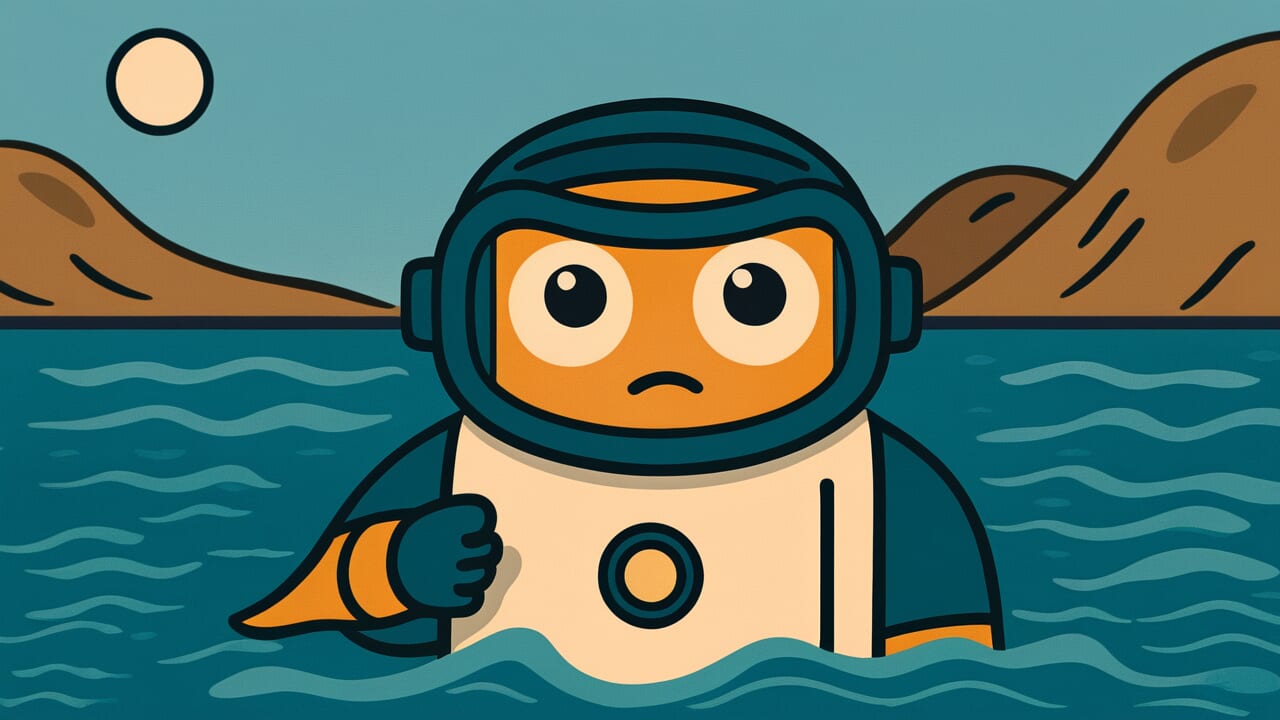How to Read “Fish don’t see the water, people don’t see the sky”
Uo no me ni mizu miezu, hito no me ni sora miezu
Meaning of “Fish don’t see the water, people don’t see the sky”
This proverb teaches that things too obvious often go unnoticed. Just as fish don’t see the water they swim in and people don’t see the air around them, we fail to recognize what’s always there.
We’re supported by countless things every day. But when something becomes too familiar, we stop seeing its value or importance.
Think about meals your family cooks daily. Or running water and electricity you use without thinking. Your healthy body. Your peaceful everyday life.
We often realize how precious these things are only after losing them. This proverb reminds us to notice the blessings we consider “normal.”
The same applies to your own strengths and talents. What comes easily to you might seem ordinary. You assume everyone can do it too.
But that ability might actually be rare and valuable. Fish don’t see the water, people don’t see the sky encourages us to rediscover the worth of things too close to notice.
Origin and Etymology
The exact source of this proverb is unclear. However, its structure suggests connections to Eastern philosophy, especially Zen thought.
Zen dialogues include similar expressions like “fish forget the water, birds forget the wind.” They share the same insight about human awareness.
This proverb uses two contrasts to reveal a deeper truth. Water is life itself for fish. They cannot exist apart from it even for a moment.
Yet precisely because of this, fish never think about water. Similarly, humans cannot live without air. But we rarely feel its presence in our daily lives.
This expression emerged from observing human nature. We tend to lose sight of what matters when buried in routine.
Buddhist thought includes the phrase “ordinary mind is the way.” It teaches that truth exists within everyday life.
Fish don’t see the water, people don’t see the sky expresses this same idea. It uses simple metaphors anyone can understand. Fish and water, people and air.
The structure itself embodies the proverb’s essence. It helps us notice what we normally overlook.
Usage Examples
- Going to school healthy every day was fish don’t see the water, people don’t see the sky—I only realized that happiness after being hospitalized
- Parental love is fish don’t see the water, people don’t see the sky; you finally understand its value when you start living alone
Universal Wisdom
This proverb speaks about the limits of human perception. And the unhappiness that comes from those limits.
We have an ironic trait. The most important things become invisible to us. This happens because human attention naturally focuses on change and stimulation.
Fish don’t notice water because it stays constant. People don’t feel air because it’s always there unchanged.
Similarly, we take daily happiness for granted. We chase new stimulation and change instead. Only after losing something do we realize “that was happiness.”
This blind spot in perception shows up clearly in relationships. The kindness of people always beside you. The value of those who support you constantly.
These become like air—taken for granted. They fall outside our awareness of what deserves gratitude.
Then the relationship breaks. Or we lose that person. Only then do we understand how much they meant to us.
This proverb has endured through generations for a reason. Human nature doesn’t change across time.
We complain despite abundance. We forget value after obtaining something. This cycle repeats endlessly.
Perhaps this contradiction defines human existence itself. That’s why our ancestors left us these words. They wanted to help us notice what we miss.
When AI Hears This
Research shows the human brain receives 11 million bits of information per second. Yet we can consciously process only about 40 bits.
To bridge this extreme gap, the brain automatically excludes “things always there” from conscious processing.
Fish don’t recognize water not from laziness. It’s an adaptive strategy. By cutting out unchanging background information, they can quickly detect changes that matter—food or enemies—for survival.
What’s interesting is how this mechanism connects directly to “habituation.” When you enter a new environment, you strongly notice the air’s smell and room temperature.
But minutes later, these sensations disappear. The prefrontal cortex judges the information as “no change” and pushes it outside consciousness.
In other words, we’re destined to stop recognizing stable things. This is built into how our brains work.
For AI, air and vacuum are just data. But for humans, air is “too present to see.”
This proverb reveals a paradox. Cognitive blind spots don’t come from ignorance. They come from excessive familiarity.
You struggle to notice changes in family members you see daily. You can’t really feel your own face aging when you look in the mirror every day.
The same cognitive mechanism operates in both cases. By making things invisible, the brain concentrates limited attention resources on detecting truly important changes.
Lessons for Today
Fish don’t see the water, people don’t see the sky teaches modern people about conscious gratitude. We need to develop the ability to notice true richness within the ordinary.
Start with a simple practice. At day’s end, ask yourself: “What did I take for granted today?”
Waking up this morning. Water flowing when you turn the tap. Someone important to you getting through the day safely.
Just putting these into words makes invisible value visible. Recognition alone brings what you couldn’t see into focus.
The same applies to your abilities and environment. What you do “normally” might be an enviable talent to someone else.
What you consider “obviously this way” might actually rest on many people’s efforts or fortunate circumstances.
Like fish unable to perceive water, we can never be completely objective. But knowing this proverb lets us shift perspective slightly.
The very effort to see the invisible will enrich your life. That attempt itself makes the difference.



Comments